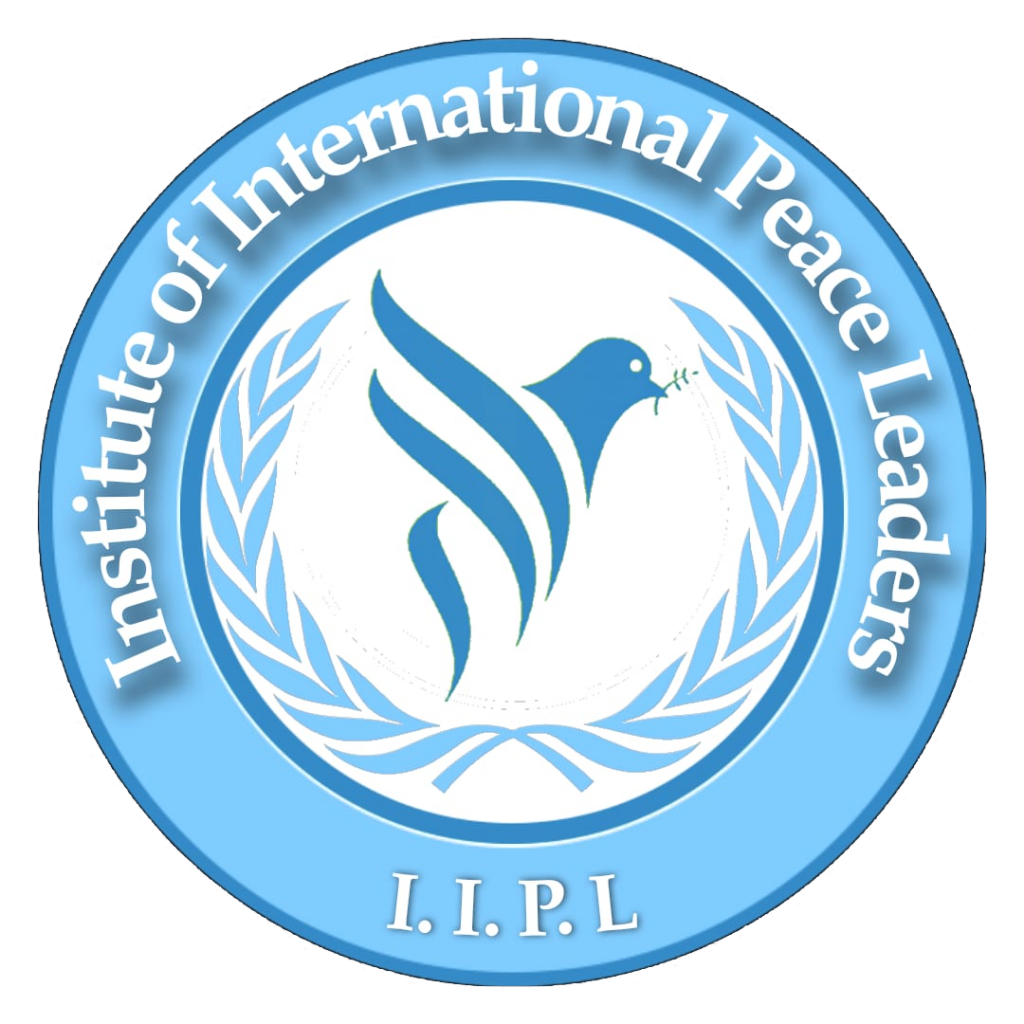COMMUNITY ENGAGEMENT AND SOCIAL RESPONSIBILITY: GRASSROOTS APPROACHES TO THE SDGS IN PAKISTAN
Introduction:
In a world marked by complex challenges and a shared responsibility for our planet’s future, Pakistan boldly reaffirmed its commitment to the 2030 Agenda for Sustainable Development. This momentous pledge was solidified through a unanimous resolution in the National Assembly in 2016, igniting a nationwide pursuit of the Sustainable Development Goals (SDGs).
Since that resounding declaration, Pakistan has undertaken a remarkable journey towards the fulfilment of these global goals. The nation’s leaders have embraced the SDGs, weaving them into the very fabric of national policies and strategies. A dedicated institutional framework, including SDG support units at both federal and provincial levels, now stands as a testament to Pakistan’s unwavering commitment. These units operate in close collaboration with vital planning institutions like the Ministry of Planning Development and Special Initiatives and Provincial Planning and Development Departments.
In 2018, Pakistan reached another milestone when the government designed and officially sanctioned the National SDGs Framework. This visionary framework paints a comprehensive national vision that priorities and localising the SDGs, recognizing the unique needs and potential of every region. Meanwhile, localised provincial SDG Frameworks are swiftly taking shape.
But it’s not just about formalising commitment on paper. Pakistan’s government has its sights set on transformational action. Their primary focus centres on infusing the SDGs into every aspect of the nation’s planning processes, setting up robust monitoring and reporting mechanisms, ensuring public financial allocations align with these sustainable goals, exploring innovative financing methods, and leveraging technology to expedite progress.
The 2030 Agenda for Sustainable Development is a tapestry woven with 17 interconnected SDGs and 169 associated targets—a roadmap toward the sustainable future we aspire to build. However, the realisation of these ambitions demands more than government efforts alone; it necessitates a united front. It requires collaboration that transcends sector boundaries, combining financial resources, knowledge, and expertise. It’s a call for innovative, multi-stakeholder partnerships that hold the key to our collective success.
As Pakistan strides towards the United Nations Sustainable Development Goals (SDGs) by 2030, the nation recognizes that one of the most critical strategies for success rests within its own communities. The power of grassroots initiatives in shaping sustainable development is a force that cannot be underestimated. This article embarks on a journey to explore how local communities in Pakistan are not merely bystanders but the vanguard of progress towards the SDGs, reminding us that, indeed, change begins at home.
- The Significance of Community Engagement
Communities are the backbone of society, and their active participation is pivotal in achieving the SDGs. In Pakistan, a country characterised by its diverse cultural tapestry, harnessing the potential of communities holds the key to addressing the unique challenges faced by different regions.
Cultural and Regional Variation: Community involvement tailors solutions to local needs, accounting for regional disparities and cultural nuances.
Local Knowledge: Communities hold valuable knowledge about their environments, contributing to more effective and sustainable development.
Ownership and Empowerment: Active engagement empowers communities, fostering a sense of responsibility and sustainability.
Tailored Solutions: Community engagement allows for unique, community-specific problem-solving.
Social Cohesion: Collaboration promotes unity, essential in a diverse country like Pakistan.
Resource Mobilisation: Communities can contribute resources, reducing financial burdens and fostering commitment.
Effective Implementation: Local communities can efficiently execute projects, navigate local conditions, and overcome bureaucratic hurdles.
- Empowering Women at the Grassroots Level (SDG 5):
One of the standout successes in Pakistan’s pursuit of the SDGs has been the grassroots empowerment of women. Initiatives like the “Lady Health Worker Program” have not only improved healthcare access but have also created opportunities for women to actively participate in public life. By empowering women at the local level, Pakistan is working to bridge the gender gap and drive progress towards SDG 5 (Gender Equality).
This program has successfully bridged gender gaps in healthcare and empowered women in public life. Lady Health Workers provide healthcare services, educate women on maternal health and family planning, and act as advocates for change in their communities, challenging traditional gender roles. The program not only improves healthcare access but also fosters women’s active participation in public life, serving as a paradigm for gender equality in Pakistan.
- Localizing Education for All (SDG 4)
In rural areas of Pakistan, access to quality education remains a challenge. However, local community schools have sprung up to fill the gap, ensuring that children receive an education. These community-driven initiatives are vital in achieving SDG 4 (Quality Education) by providing access to learning opportunities for all, regardless of their background.
Local Leadership: Managed by community members, community schools ensure that education aligns with local needs.
Affordability: Low or no-cost education expands access for children from low-income families.
Relevance: Customised curricula enhance engagement and understanding.
Inclusivity: Community schools welcome diverse students, including girls and marginalised groups, promoting SDG 4 goals of quality education for all.
- Community-Managed Healthcare (SDG 3)
Grassroots healthcare initiatives like community clinics and health awareness campaigns have made healthcare more accessible in remote areas of Pakistan. These local efforts contribute to progress on SDG 3 (Good Health and Well-being), as they improve healthcare access and promote health education.
In the remote regions of Pakistan, grassroots healthcare initiatives have emerged as transformative forces, enhancing healthcare access and awareness. Community clinics and health awareness campaigns spearheaded by local communities have made healthcare more accessible and contribute significantly to progress on SDG 3 (Good Health and Well-being).
Key Components of Community-Managed Healthcare Initiatives:
Community Clinics:These are small healthcare facilities established and run by local communities or non-governmental organisations. They serve as primary healthcare centres, providing basic medical services, vaccinations, and essential medications. Community members often receive training to serve as healthcare providers or health workers within these clinics.
Health Awareness Campaigns: Local communities actively engage in raising health awareness. They organise health camps, workshops, and seminars to educate community members about common health issues, preventive measures, and the importance of regular check-ups.
Impact on SDG 3: Good Health and Well-being
Improved Healthcare Access:In regions where government healthcare facilities may be distant or limited, community clinics serve as lifelines for medical services. They significantly reduce travel and financial barriers to accessing healthcare.
Health Education:Health awareness campaigns empower communities with knowledge about health practices, hygiene, and the significance of regular check-ups. This education fosters a culture of proactive health management, reducing the incidence of preventable diseases.
Preventive Care:These initiatives emphasise preventive measures, which align with SDG 3’s goals of reducing disease burdens and promoting well-being. Regular health camps and vaccinations contribute to community well-being.
Reducing Health Disparities: By reaching underserved and remote areas, community-managed healthcare initiatives work towards reducing health disparities and ensuring that no community is left behind in the pursuit of good health.
Complementing Formal Healthcare:These initiatives are essential complements to formal healthcare systems. They offer immediate care and health education, enhancing the overall health infrastructure of the regions they serve.
Community-managed healthcare initiatives are cornerstones of good health and well-being in Pakistan’s remote areas. By making healthcare more accessible and raising health awareness, these initiatives contribute significantly to SDG 3. In the context of global health challenges and the ongoing pursuit of the SDGs, these grassroots efforts demonstrate that sustainable progress towards good health starts at the local level.
- Environmental Conservation at the Local Level (SDG 13)
In the face of environmental challenges such as water scarcity and deforestation, local communities are taking up initiatives for conservation. From tree-planting campaigns to water resource management, grassroots environmental efforts play a crucial role in addressing SDG 13.
In Pakistan, where environmental challenges like water scarcity and deforestation loom large, local communities have stepped up with grassroots initiatives to drive environmental conservation. From tree-planting campaigns to water resource management, these community-driven efforts play a pivotal role in addressing SDG 13 (Climate Action).
Key Initiatives
Tree Planting and Reforestation: Local communities are actively involved in tree-planting campaigns to combat deforestation and promote reforestation. These initiatives help replenish forests, mitigate soil erosion, and contribute to carbon sequestration. Such as the “ Billion Tree Tsunami” initiative.
Watershed Management: Water resource management projects at the local level involve efficient utilisation of water, preservation of water bodies, and restoration of natural watercourses. These initiatives combat water scarcity, improve water quality, and ensure sustainable water access for communities.
Sustainable Agriculture Practices: Local farmers are adopting sustainable agricultural practices that reduce the environmental footprint, including efficient water use, organic farming, and agroforestry. These practices help secure food production while preserving the environment.
Waste Management and Recycling: Communities are establishing waste management systems, recycling centres, and waste reduction programs to minimise environmental pollution and promote recycling, reducing the burden on landfills.
Impact on SDG 13: Climate Action
The grassroots environmental initiatives in Pakistan are making a substantial impact on SDG 13:
Mitigation of Climate Change: Tree planting and reforestation initiatives enhance carbon sequestration, contributing to climate change mitigation. These efforts help absorb greenhouse gases, thereby reducing the carbon footprint.
Adaptation to Environmental Challenges: Watershed management and sustainable agriculture practices address the impacts of climate change, such as water scarcity. These actions make communities more resilient to environmental challenges.
Biodiversity Preservation: By protecting natural habitats and engaging in conservation efforts, local communities support biodiversity, an essential component of climate resilience and ecosystem health.
Sustainable Resource Use: Community-driven initiatives promote responsible resource management, reducing overexploitation and safeguarding natural resources for future generations.
Educational and Awareness Benefits: These initiatives also have an educational component, raising awareness about environmental issues and fostering a culture of environmental stewardship within communities.
The grassroots environmental conservation efforts in Pakistan exemplify how local actions can drive global change. These initiatives not only address pressing environmental issues like deforestation and water scarcity but also directly contribute to SDG 13’s objectives of climate action. By promoting a sustainable and resilient approach to environmental conservation, local communities in Pakistan are acting as pioneers in the fight against climate change, proving that the road to a sustainable future begins at the grassroots level.
- 7. Social Entrepreneurship and Economic Growth (SDG 8)
Communities often serve as fertile grounds for social entrepreneurship, where local businesses and cooperatives take root to create economic opportunities, reduce poverty, and drive progress toward SDG 8 (Decent Work and Economic Growth).
Key Aspects of Social Entrepreneurship in Communities:
Local Enterprises: Social entrepreneurship encompasses a wide range of local enterprises, including small businesses, cooperatives, microfinance institutions, and community-driven ventures. These enterprises aim not only to generate profit but also to create social and environmental value.
Solving Local Challenges: Many social enterprises are born out of a desire to address pressing local challenges. These businesses identify community needs and develop innovative solutions that provide employment, products, or services that benefit the local population.
Empowering Communities: Social enterprises often involve community members directly in their operations, providing them with ownership, job opportunities, and financial benefits. This empowerment is a key driver of economic growth at the grassroots level.
Impact on SDG 8: Decent Work and Economic Growth
Job Creation: Social enterprises create job opportunities for community members, including marginalised groups and individuals with limited access to formal employment. This aligns with SDG 8’s objective of promoting full and productive employment.
Poverty Reduction: By offering stable sources of income and livelihoods, social enterprises contribute to reducing poverty within communities, directly addressing SDG 8’s aim to eradicate poverty in all its forms.
Skills Development: Social enterprises often invest in training and skill development, equipping community members with valuable skills that can enhance their employability and financial prospects.
Local Economic Resilience: Social entrepreneurship bolsters local economies by stimulating economic activity, increasing local production, and supporting community resilience, which is especially important in the face of economic shocks or crises.
Conclusion: Empowering Communities for a Sustainable Tomorrow
In the quest for a sustainable future, Pakistan has harnessed the power of its most potent asset—its communities. The journey towards the United Nations Sustainable Development Goals (SDGs) is not just a national aspiration but a collective effort that begins at home. As this article has illustrated, the significance of community engagement and social responsibility cannot be overstated.
Across diverse cultural landscapes, local communities have tailored solutions to address regional disparities and cultural nuances. They bring a wealth of local knowledge that enriches development efforts, making them more effective and sustainable. Moreover, community engagement fosters ownership and empowerment, as individuals take charge of their sustainable future, bringing to life the promise of the SDGs.
From empowering women at the grassroots level to localising education, community-managed healthcare, environmental conservation, and social entrepreneurship, Pakistan’s communities are demonstrating what is possible when united by a common purpose. These initiatives not only address specific SDGs but also underpin the interconnected nature of the goals. When local actions are multiplied, the result is a national movement driving progress towards the SDGs.
The road to achieving the SDGs is undoubtedly challenging, but with local communities at the helm, the journey becomes more manageable. As individuals, families, and communities continue to work toward a sustainable future, Pakistan is not only inching closer to SDG realisation but also building a model of community-driven development that can inspire the world. The SDGs are not just global aspirations; they are local actions, and Pakistan’s communities are making them a reality.
In Pakistan’s communities, change is no longer a distant dream but a remarkable reality. As we continue our collective journey towards 2030, let these grassroots efforts serve as a beacon of hope, a reminder that progress begins at home, and sustainable change is within our grasp.
Author
-

I'm Tayyba Arshad, residing in Chak No. 319 JB Janiwala, Toba Tek Singh. Recently, I've completed my Master's degree in Political Science from Government College University Faisalabad. My passion lies in staying informed about current national and international developments, delving into their historical context. With an extensive reading habit, I've explored over 50 books, both fictional and non-fictional. Keeping up with newspapers and indulging in documentaries and murder mysteries is my way of staying engaged. I am dedicated to working towards the betterment of society, with a particular focus on empowering women.
View all posts

